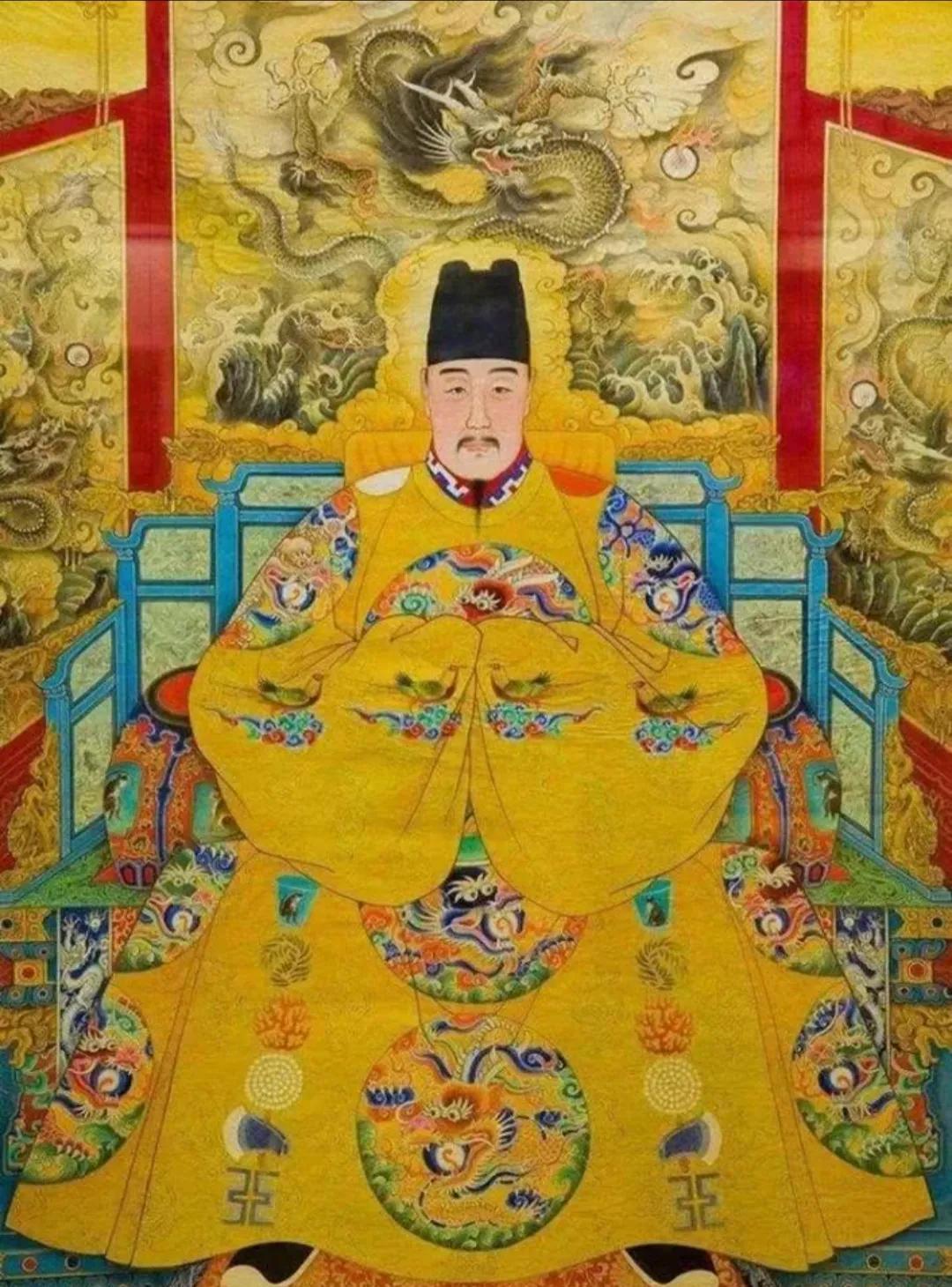Emperor Ming Shizong (Emperor Jiajing) believed in the monks to the point of drunkenness, especially after a few years on the throne, he only wanted to live forever, and from then on he worshiped the Buddha all day long, and almost all the government was put aside!
In the winter of 1524, the third year of Jiajing, When Emperor Mingshizong heard that the Jiangxi Daoist Shao Yuanjie had the art of immortality, he summoned him to the imperial palace, and after talking, he was greatly favored, and he was named "Zhiyi Zhenren", and built a Real People Mansion for him in the capital, and led the Taoism. Shao Yuanjie rearranged the jaiku set up in the palace, and followed this alchemist up and down, very busy!

Statue of the Jiajing Emperor in imperial dress
At the ceremony, it is necessary to use the sonata written to the "god of heaven", which is generally a beautiful body, because it is written on the green vine paper with a zhu pen, so it is called "green words". Sejong regarded the ability to write qingzi well as a criterion for measuring the scholarly knowledge of the courtiers, and many ministers spent their days pondering the writing of qingzi in order to gain his favor. The things of jai were continuous, and the green words were also renovated, and in the midst of the dynasty, a wind was formed that was higher than writing the green words.
Jiajing Dynasty First Auxiliary
In the eighteenth year of Jiajing (1539), Shao Yuanjie fell ill and died, and when Sejong heard the news, he was deeply distressed, personally wrote a handwritten edict, and sent eunuchs and Jinyi guards to escort the funeral home. Before Shao Yuanjie died, he introduced Fang Shi Tao Zhongwen to Sejong.
Tao Zhongwen taught Sejong to use the menstrual blood of the virgin's first arrival as a raw material to make "pure red dan of the meta nature", which can be convinced to live forever. Sejong believed it to be true, and sent a message to local officials everywhere, and selected more than 300 virgins to enter the palace to prepare for the medicine.
In a short period of time, Tao Zhongwen won the favor of Sejong again, and later, he was added to the rank of Shaoshi (少師) and later, as a young master. Tao Zhongwen's descendants and apprentices were also recruited in large numbers to serve as officials in the imperial court.
Refining elixirs
Sejong believed in Taoism and tried hard to try various immortal techniques, feeling good about himself and having great pleasure from them. But he did not follow the Taoist canon of "pure heart and widowhood", but frequently sent people to the people to select ladies, more than thousands. The woman who entered the palace had both the dual identity of a lascivious and a slave, and was bullied and insulted.
As a result, an incident of rebellion by palace women broke out.
On October 11, 1542, the twenty-first year of Jiajing (1542), Sejong was looking for pleasure at the Duan Concubine's place, after which he was mentally exhausted and fell asleep. Taking advantage of Princess Duan's absence, the palace maid Yang Jinying greeted more than a dozen sisters, rushed up, and almost strangled Sejong to death, but fortunately Empress Fang came in time to save him.
The rebellion of the palace maid sounded a warning bell to Sejong, but he did not realize it, and even thought that the great difficulty of not dying was also the result of the worship of the gods. But from then on, he no longer dared to live in the Qianqing Palace, and claimed that he was an outsider, the suburban temple was not close, the court was exhausted, he concentrated on the Xuan cultivation, and he did not meet with any concubines and palace women, nor did he meet with the ministers. From then on, Wenwu of the Manchu Dynasty knew that there was such an emperor.
Hua Yu had something to say:
In ancient times, there were not a few emperors who believed in Buddhism and Taoism, but most of them failed to hinder the rule of imperial power and the development of the country in a practical sense! Like the Yongzheng Emperor, although he took Dan medicine and raised Taoist priests in the palace, the Yongzheng Emperor did not give up government affairs, but did his best to serve the country and the people! On the other hand, the Jiajing Emperor can also be regarded as the number one among the emperors!
The content refers to the "Twenty-Four Histories", "The Complete Biography of the Chinese Emperor", "Five Thousand Years of China" and so on.